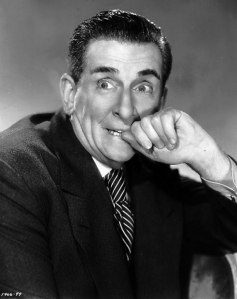Think about how you’ve been feeling lately. Felt any anxiety?
If no, perhaps get another cup of coffee, read another blog, or go back to work. 🙂
But my guess is, yes, you have felt at least some anxiety about something in relatively recent times. Like maybe this morning.
I think what has helped me, personally, the most in managing anxiety (yes, therapists have feelings, too, including anxiety at times), as well as what has helped my patients, is disarming anxiety by way of… probability. Yes, probability.
Wait, hear me out. While that might sound really strange, let’s take a closer look: I define anxiety as “the fear of loss”. It can be loss of our physical security, such as if I don’t wear my car seatbelt, I might be anxious that if I have an accident, I’ll be thrown from the car and crushed in a million pieces. Fair enough; wear the belt. But I might also be anxious before I speak to a large audience (heck, even a small one — ever had to make a presentation at work??). But in that case, the audience isn’t going to crush me into a million pieces. The “loss” in this situation might be a threat to the loss of our dignity, or looking socially inept if the audience doesn’t like our presentation. So, why are the feelings of anticipatory anxiety the same? Because in both cases, it’s the anticipation of the fear of possible loss.
And it’s that “anticipation of the fear of possible loss” where probability comes into play. We have to ask ourselves, while we are in the role of fortune-telling, future-predicting swami, what is the fear, specifically, that arouses my anxiety? Am I going to go out there, give my presentation to an audience, and have them throw rotten tomatoes at me while they scream, Boo! Get off the stage, you quack, Howard! Then we have to ask ourselves, How likely is what I fear to happen? What is its probability? In a case like that, not very much. So, if the probability is not bloody likely, then why do we have fear? What happens to our fear, when we assess the probability of it actually happening? Kinda takes the wind out of our Anxiety Sails, doesn’t it?
Let’s try a different anxiety, same situation. What if I’m anxious because part of my presentation isn’t rehearsed well, because I had to work late last night on another deadline and only rehearsed the first two-thirds of my speech? What if I’m anxious because I might look stupid because the last third isn’t well-rehearsed, and I might get very confrontive questions from the audience on that portion, and I might blush and feel flustered and embarrassed? OK; the probability of that happening might be a little more, if we truly did not rehearse adequately. But what if, instead of getting flustered, we rely on our considerable experience and knowledge from previous presentations and make a good “improvisation” at that point, and just go with the flow, trusting that we know what we’re talking about in the general area of that last portion of the presentation, because, after all, we wrote it? We have a coping strategy in the moment. OK, now what happens to our anxiety? Less, right? Because we feel prepared and confident, including the parts that feel least prepared.
In other words, our anxiety is always reduced when we consider that it is human nature to over-state the probability of our fear fantasies (and we humans are a creative bunch; we do tend to have wildly imaginative fear fantasies). And, our anxiety is reduced when we have something — anything — that is a potential coping strategy.
So, the next time you feel anxious, you have work to do. Ask yourself:
1) What are my fear fantasies?
2) How likely is that to actually happen?
3) How could I cope with the situation even if that did happen?
and….
4) How can I re-focus my thinking on something more realistic that helps me to concentrate on something more important?
See? And you thought those classes in Statistics and Probability back in school wouldn’t ever be useful.
Ken Howard, LCSW, is a specialist in therapy for gay men (over 26 years) and is a gay men’s life coach, offering sessions in person in Los Angeles, or anywhere in the world via phone or webcam. To schedule a free 15-minute consultation, to book an appointment, or for more information, call/text 310-339-5778, or email Ken@GayTherapyLA.com.


